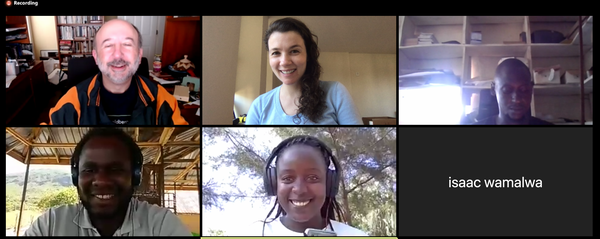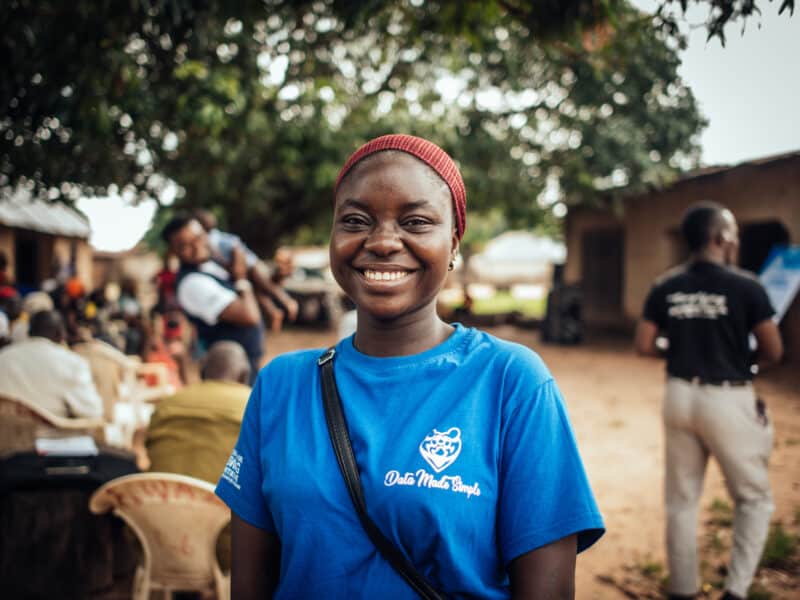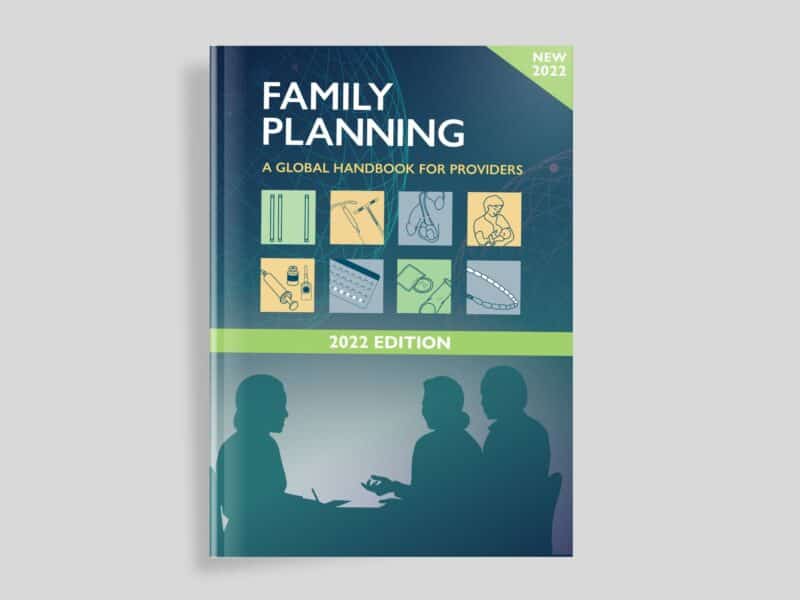Much of the work of the Johns Hopkins Center for Communication Programs is done face to face: Community health workers discussing the importance of family planning with their neighbors. Case managers going door-to-door to identify – and get testing for – children deemed at risk of HIV. Service providers getting feedback from patients about biases that could be preventing high-quality care.
So, what do you do when large gatherings are prohibited, travel is discouraged and people are being asked to stay away from each other? CCP is tackling the new challenges raised by the COVID-19 pandemic raging across the world, including the dozens of countries in Africa, Asia and Latin America where CCP works.
With in-person work off the table in many places, CCP has used technology in new ways to spread important social and behavior change messages – and to develop them as well.
“We have long used digital technology to do our work, but probably not as much as we could have,” says Susan Krenn, CCP’s executive director. “Imagine if we didn’t have this digital capacity. We’d be at a standstill. Instead we’re moving ahead on all fronts.
“We would rather be doing our work in person – and we will do it that way again – but in these challenging times, we have had to be creative and nimble in how we adapt to the new realities.”
Some campaigns can go forward as planned: Radio and television shows are still great ways to spread messages, as are social media and call-in hotlines and the many other ways that mass media messages are shared. Others that rely on community sessions or support groups or appointments with health care providers are being delayed. Still other activities are happening, but with some adjustments made necessary by stay-at-home orders and social distancing requirements.
Take message development.
When CCP develops messages for behavior change campaigns, staff conduct what is called “pre-testing” before they are shared with a wider audience. Typically, this is done with small groups to find out whether the messages make sense, resonate and would spur audiences to take the desired action, such as sleep under a bed net to prevent malaria or space the birth of their children. These focus groups also assess preliminary designs for posters and other materials. Getting this feedback is crucial to developing the most effective campaigns possible, Krenn says.
In Indonesia, where CCP’s Breakthrough ACTION is working with the government to develop messages about preventing the spread of COVID-19, in-person focus groups to test the messages aren’t possible right now. So how were people surveyed about the new materials? By phone.
The Indonesia team recruited 16 participants who then were interviewed via the video call function on WhatsApp. Those interviews were then compiled and helped the team to choose the messages and materials they believe will help people prevent the spread of the coronavirus.
These pivots are not only happening in COVID-19 work, but in the work that CCP has always done. In Nigeria, for example, the Nigeria Urban Reproductive Health Initiative has over the past three years developed WhatsApp groups for service providers to give them the opportunity to share experiences, learn from each other and exchange ideas on best practices.
Having all of these service providers available on WhatsApp enabled the NURHI team to virtually pre-test a new job aid in the past few weeks. The input from the providers helped the designers to create a clear and colorful chart – and by getting the providers’ opinions, it should increase their buy-in once the tool is disseminated.
Research activities across the Unitaid-funded Advancing Evidence for the Global Implementation of Spatial Repellents project have been delayed due to COVID-19. While CCP’s role is to lead the social science research for the project, a critical piece of the scope of work is capacity strengthening for social science research.
Since data collection is on hold, CCP and the Johns Hopkins Bloomberg School of Public Health set up a series of remote skills-building sessions over Zoom with colleagues at the Kenya Medical Research Institute (KEMRI). This includes weekly, two-hour interactive sessions as well as hands-on exercises and readings that people can work on individually between sessions.
“I think we were all surprised at how well the remote sessions have been working and it’s probably not something we would have thought of doing if not for the current situation with COVID-19,” says April Monroe, who leads the work for CCP.
CCP’s USAID-funded Knowledge SUCCESS project was supposed to be holding four three-day workshops around the world in Nairobi, Marrakech, New Delhi and Washington, DC. Instead, these workshops – designed to develop new solutions to challenges that family planning professionals face when trying to find, share, and use knowledge related to their work – have been held over the course of four weeks as participants convene on Zoom for plenary sessions and small group work.
To maintain the engaging and interactive spirit of an in-person workshop, the facilitators have added team-building activities, icebreakers and digital tools like virtual brainstorming sticky notes.
“Involving the project’s audiences in designing new knowledge management solutions and allowing them to drive the design thinking process will lead to more effective solutions that better address their needs, and ultimately to greater ownership and sustainability of the solutions,” says CCP’s Ruwaida Salem, who is leading the workshops. “We’re able to do all of that, just online instead of in person.”





